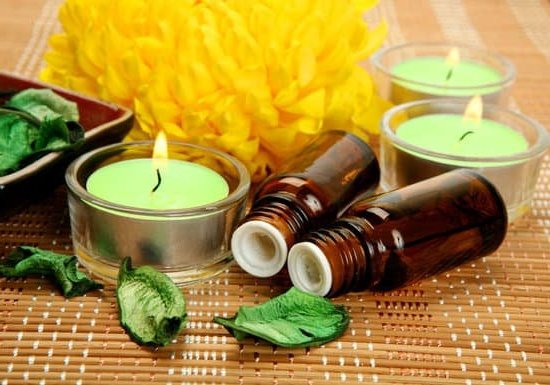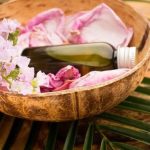Aromatherapy is a holistic healing practice that has been used for centuries to promote physical and psychological well-being. But what category is aromatherapy classified under in the realm of Complementary and Alternative Medicine (CAM)? Aromatherapy falls under the category of complementary therapy, which means it is used alongside conventional medical treatments to enhance overall health and wellness.
The use of aromatic plants and natural essential oils for therapeutic purposes can be traced back to ancient civilizations such as the Egyptians, Greeks, and Romans. Aromatherapy has evolved over time, blending traditional knowledge with modern scientific research to provide a wide range of benefits for the mind and body.
The practice of aromatherapy involves harnessing the therapeutic properties of essential oils extracted from plants through methods such as inhalation, topical application, or diffusion. These essential oils can affect the limbic system in the brain, which controls emotions, behaviors, and memory, leading to various health benefits. As we delve deeper into the world of aromatherapy, we will explore its history, benefits, application methods, popular essential oils used, safety considerations, and its role in modern healthcare.
History of Aromatherapy as a Healing Practice
Aromatherapy has a rich history that stretches back thousands of years, with roots in ancient civilizations such as Egypt, Greece, and China. In these early societies, aromatic plants and essential oils were valued for their medicinal properties and spiritual significance. The practice of using aromatic substances for healing purposes was an integral part of traditional medicine systems around the world.
One of the earliest recorded uses of aromatherapy dates back to ancient Egypt, where aromatic plant oils were distilled for use in medicines, cosmetics, and embalming rituals. The famous Ebers Papyrus, an ancient medical document dating back to around 1550 BCE, contains references to the use of essential oils for various health complaints. Similarly, in ancient Greece, renowned physicians like Hippocrates and Galen incorporated aromatic botanicals into their healing practices.
The term “aromatherapy” itself was coined in the early 20th century by French chemist René-Maurice Gattefossé, who accidentally discovered the healing properties of lavender oil when he used it to treat a burn on his hand. This serendipitous event sparked renewed interest in the therapeutic potential of essential oils and paved the way for modern aromatherapy practices. Today, aromatherapy continues to evolve as a holistic approach to health and wellness that embraces both ancient wisdom and contemporary scientific knowledge.
Benefits of Aromatherapy for Mind and Body
Aromatherapy, often classified as a part of complementary and alternative medicine, offers numerous benefits for both the mind and body. The use of essential oils in aromatherapy can have a profound impact on mental and emotional well-being, as well as physical health. Aromatherapy is known to help reduce stress, anxiety, and promote relaxation, making it a popular choice for individuals seeking natural ways to improve their overall wellness.
One of the key benefits of aromatherapy is its ability to support mental health by positively influencing mood and emotions. Essential oils like lavender, chamomile, and bergamot are known for their calming properties and can help alleviate feelings of stress and anxiety. Additionally, certain essential oils have been found to improve focus, clarity, and cognitive function, making them useful tools for enhancing concentration and productivity.
On a physical level, aromatherapy can also provide relief from various ailments and promote overall well-being. Essential oils like eucalyptus, peppermint, and tea tree have antibacterial and anti-inflammatory properties that can help boost the immune system and support respiratory health. Whether used in massage oils, diffusers, or bath products, the therapeutic effects of aromatherapy can contribute to a holistic approach to health and wellness.
| Category | Description |
|---|---|
| Mental Health | Positive influence on mood, emotions; reduces stress & anxiety. |
| Physical Health | Relief from ailments; boosts immune system; supports respiratory health. |
Science Behind Aromatherapy
Aromatherapy, also known as essential oil therapy, is a holistic healing treatment that uses natural plant extracts to promote health and well-being. Essential oils are derived from various parts of plants, including flowers, leaves, stems, roots, or fruits. These oils contain the essence of the plant’s fragrance and have been used for centuries for their therapeutic properties. But how exactly do essential oils work in aromatherapy?
Chemical Composition of Essential Oils
Essential oils are made up of various chemical compounds that interact with the body when they are inhaled or applied topically. These compounds can have different effects on the body, such as calming the mind, reducing inflammation, or boosting the immune system. For example, lavender essential oil contains linalool and linalyl acetate, which have sedative and anti-anxiety properties.
Effect on the Brain and Nervous System
When essential oils are inhaled through aromatherapy practices like diffusing or direct inhalation, they stimulate the olfactory system in the brain. The olfactory system is connected to the limbic system, which controls emotions, memories, and behaviors. This connection is why certain scents can evoke specific emotions or trigger memories. For example, inhaling citrus essential oils like lemon or orange can help uplift mood and increase energy levels.
Pharmacological Effects of Essential Oils
In addition to their effects on the brain and nervous system, some essential oils also have pharmacological effects on the body. When applied topically or ingested (under proper guidance), certain essential oils can have analgesic (pain-relieving), anti-inflammatory, antibacterial, or antifungal properties.
For example, tea tree essential oil has antimicrobial properties that make it effective in treating skin conditions like acne or fungal infections. Understanding how essential oils work at a chemical level helps explain their therapeutic benefits in aromatherapy practice.
Different Methods of Aromatherapy Application
Aromatherapy encompasses a range of methods for application, each offering unique benefits and experiences. One common method is inhalation, where essential oils are diffused into the air through devices like diffusers or added to a bowl of hot water for steam inhalation. Inhaling the aroma of essential oils can have a direct impact on the respiratory system, promoting relaxation or providing relief from congestion.
Another popular method is topical application, where diluted essential oils are applied to the skin through massage or added to skincare products. This allows for absorption through the skin, offering localized benefits such as pain relief or skin rejuvenation.
One lesser-known method of aromatherapy application is through ingestion, where essential oils are consumed orally in small amounts. However, this method requires caution and should only be done under the guidance of a qualified aromatherapist due to the potency of essential oils.
Additionally, aromatherapy can also be incorporated into daily routines through products like candles, bath salts, or room sprays for a more subtle but still effective way to experience the benefits of essential oils. Each method offers a unique way to enjoy aromatherapy and can be tailored to individual preferences and needs.
In summary, what category is aromatherapy falls under would be complementary and alternative medicine (CAM). Aromatherapy is considered a holistic healing practice that complements conventional medical treatments by focusing on the use of natural plant extracts to promote physical and emotional well-being.
It is often used in conjunction with other CAM practices such as acupuncture, massage therapy, or herbal medicine to enhance overall health and wellness. The versatility of aromatherapy in its various methods of application makes it accessible to individuals seeking natural alternatives for health maintenance and improvement.
| Aromatherapy Application Method | Description |
|---|---|
| Inhalation | Direct impact on respiratory system, promotes relaxation or relieves congestion. |
| Topical Application | Applied to the skin through massage or skincare products for localized benefits. |
| Ingestion | Consumed orally in small amounts; requires caution and guidance from an aromatherapist. |
Popular Essential Oils Used in Aromatherapy
Aromatherapy utilizes a variety of essential oils derived from plants to promote physical and psychological well-being. These oils are extracted through processes like distillation or cold pressing, capturing the plant’s aromatic compounds that have therapeutic properties. Popular essential oils used in aromatherapy offer a wide range of benefits, from calming effects to immune support and pain relief. Here are some commonly used essential oils in aromatherapy:
- Lavender Oil: Known for its relaxing and calming properties, lavender oil is often used to reduce stress, anxiety, and improve sleep quality.
- Peppermint Oil: With its invigorating scent, peppermint oil is commonly used to relieve headaches, boost energy levels, and aid in digestion.
- Tea Tree Oil: Recognized for its antibacterial and antifungal properties, tea tree oil is frequently used for skin conditions like acne or fungal infections.
Aromatherapy practitioners carefully select essential oils based on their specific therapeutic effects and individual needs of the clients. Each essential oil has unique chemical compositions that determine its health benefits when inhaled or applied topically. However, it is important to note that these potent oils should be diluted properly before use to prevent skin irritation or adverse reactions.
- Eucalyptus Oil: Known for its respiratory benefits, eucalyptus oil can help alleviate congestion and promote easier breathing during colds or flu.
- Frankincense Oil: Often used in meditation practices, frankincense oil is valued for its grounding and spiritual properties as well as its potential anti-inflammatory effects.
- Rosemary Oil: With its stimulating aroma, rosemary oil is favored for improving concentration, memory retention, and promoting hair growth when applied topically.
These popular essential oils play a significant role in aromatherapy practice by providing a natural approach to maintaining overall health and well-being. Whether diffused into the air or incorporated into massage oils, these plant-derived extracts offer a holistic way to support the body and mind. It is essential to consult with a qualified aromatherapist or healthcare professional to determine the most suitable essential oils for your individual needs and ensure safe usage.
Aromatherapy in Modern Healthcare
With the growing interest in alternative and complementary healing practices, aromatherapy has found its place in modern healthcare as an integrative medicine approach. Integrative medicine combines conventional Western medicine with complementary and alternative therapies to focus on treating the whole person, not just the disease. Aromatherapy is being used alongside traditional medical treatments to promote overall well-being and enhance the healing process.
Aromatherapy in Hospitals and Clinics
Hospitals and clinics are increasingly incorporating aromatherapy into their patient care protocols. Aromatherapy is being used to help manage pain, reduce anxiety, improve sleep quality, and even enhance wound healing. Patients undergoing chemotherapy, surgeries, or other medical procedures have reported feeling more relaxed and experiencing less pain when essential oils are diffused or applied during their treatment. This integration of aromatherapy demonstrates a shift towards a more holistic approach to healthcare.
Collaboration With Healthcare Providers
In integrating aromatherapy into modern healthcare, collaboration between trained aromatherapists and healthcare providers is essential. Aromatherapists can work closely with doctors, nurses, and other medical professionals to create personalized aromatherapy plans for patients based on their specific health needs. This collaboration ensures that aromatherapy is safely incorporated into the overall treatment plan while considering any potential interactions with medications or existing health conditions.
What Category Is Aromatherapy
Aromatherapy falls under the category of complementary and alternative medicine (CAM). This classification encompasses a diverse range of healing approaches that are used alongside or instead of traditional Western medical practices. CAM focuses on treating the whole person, considering not just physical symptoms but also emotional, mental, and spiritual well-being. Aromatherapy specifically utilizes essential oils extracted from plants to promote health and wellness through their aromatic properties.
In the realm of CAM, aromatherapy is considered a holistic healing modality that addresses both the physical and emotional aspects of an individual. By harnessing the therapeutic benefits of essential oils, aromatherapy aims to support the body’s natural ability to heal itself and restore balance. It is often used in conjunction with other CAM practices such as massage therapy, acupuncture, or herbal medicine to enhance overall well-being.
Here are some key points that highlight why aromatherapy is classified under complementary and alternative medicine:
- Focus on holistic health: Aromatherapy considers the interconnectedness of body, mind, and spirit in promoting wellness.
- Non-invasive approach: Essential oils are generally safe when used properly and do not cause harmful side effects like many pharmaceutical medications.
- Emphasis on prevention: Aromatherapy can be used preventatively to maintain health and address minor ailments before they escalate.
Safety Considerations and Precautions in Aromatherapy Practice
In conclusion, aromatherapy is a widely practiced form of complementary and alternative medicine that has been used for centuries to promote well-being and healing. From its ancient origins to its modern applications in healthcare, aromatherapy continues to gain popularity for its holistic approach to health and wellness.
Essential oils are the foundation of aromatherapy, each with unique properties and benefits that can positively impact both the mind and body. By understanding how these oils work on a physiological level, practitioners can harness their therapeutic benefits effectively.
When considering what category is aromatherapy, it is classified as a form of complementary and alternative medicine. Its integration into modern healthcare settings demonstrates the growing recognition of its efficacy in promoting overall health.
However, it is important for practitioners and individuals utilizing aromatherapy to be aware of safety considerations and precautions to ensure its proper use and avoid any adverse reactions. By following guidelines and seeking advice from trained professionals when necessary, individuals can safely experience the many benefits that aromatherapy has to offer.
Frequently Asked Questions
What Type of Therapy Is Aromatherapy?
Aromatherapy is a type of alternative therapy that uses essential oils to improve a person’s physical, emotional, and mental well-being. These oils are typically derived from plants and are believed to have various therapeutic properties.
What Is Aromatherapy Class?
Aromatherapy classes typically focus on teaching individuals about the benefits, uses, and applications of essential oils. These classes may cover topics such as the history of aromatherapy, methods of extraction, blending techniques, safety precautions, and how to use essential oils for common health concerns.
What Type of Industry Is Essential Oils?
The essential oils industry falls under the category of the wellness industry. It involves the production, distribution, and sale of natural plant extracts used for their therapeutic properties. This industry includes suppliers of essential oils, aromatherapy products, diffusers, skincare products, and more.

Are you looking for a natural way to improve your health and wellbeing?
If so, aromatherapy may be the answer for you.



